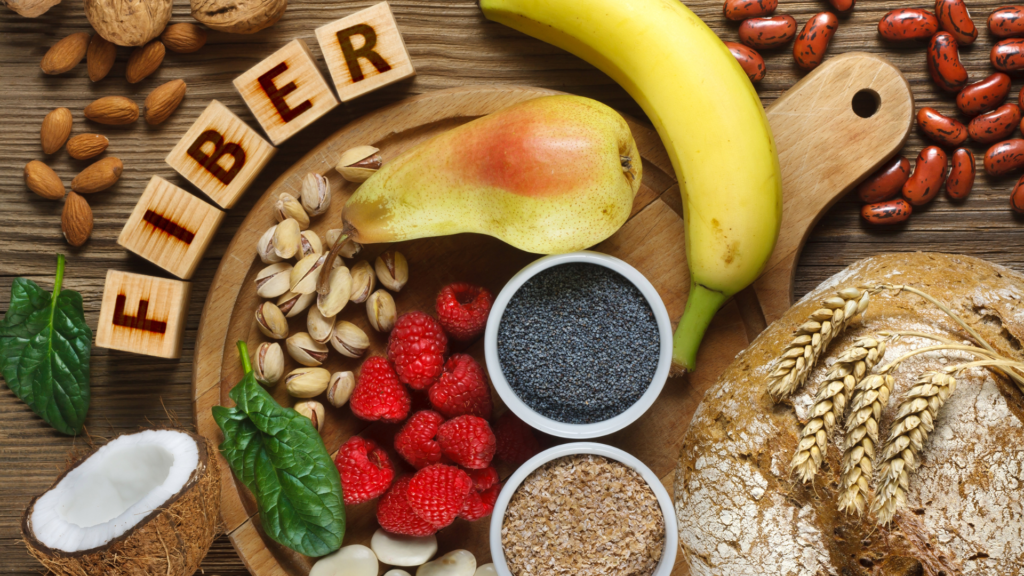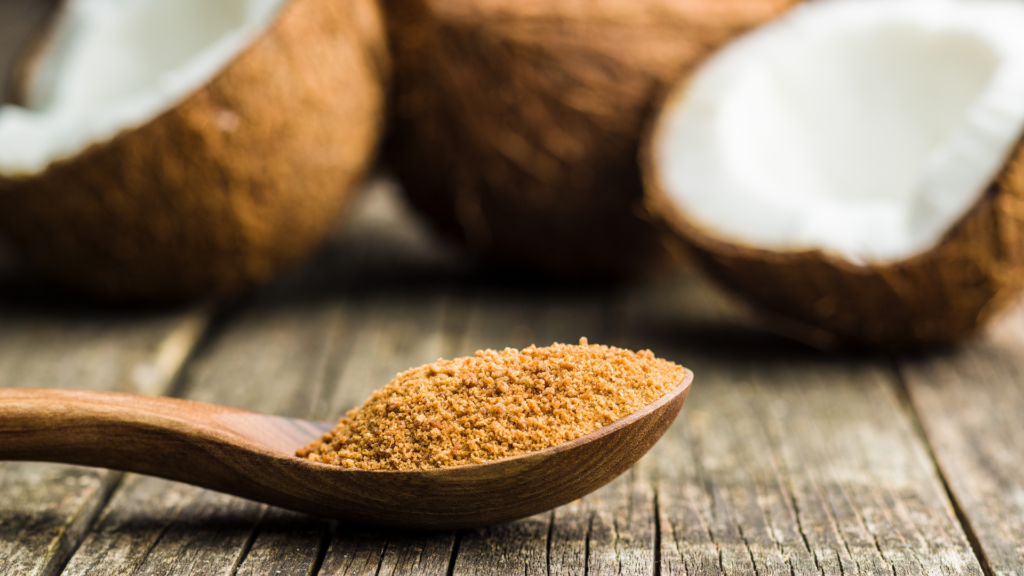In this article, you will find the habits I learned in the last 10 years that contribute to a balanced and nourishing lifestyle. Some of them you may have heard before, but if you’re like me, you want to keep learning and find new habits you can implement in your life for a healthy and happy digestive system and overall health.

20 Best Habits I Learned in My 20s
In my 20s, I embarked on a journey to better understand and improve my eating habits. This decade was a transformative period, filled with lessons that have shaped my approach to nutrition and overall well-being. Through trial and error, research, and mindful practice, I discovered the importance of making informed food choices and adopting sustainable habits that promote health and happiness.
In this blog post, I’ll share the top 20 eating habits I learned during this pivotal time, each one contributing to a balanced and nourishing lifestyle. Whether you’re looking to enhance your current diet or seeking inspiration for healthier eating, these habits can guide you towards a more mindful and wholesome relationship with food.

1. Have a Glass of Warm Lemon Water on an Empty Stomach
Having a glass of warm lemon water on an empty stomach offers numerous health benefits. It helps rehydrate the body, provides a vitamin C boost, and supports digestive health. The drink also aids in detoxification, balances pH levels, and promotes clearer skin. Additionally, it can kickstart metabolism and improve breath freshness. Incorporating this simple habit into your morning routine can enhance overall health and well-being. The acidity of lemon juice can also support liver function and help flush out toxins.
If you have never drank lemon water before, transform it into a pleasant ritual by drinking from an aesthetic glass or adding garnishes.
If you want to add some flavor to your lemon water, here are a few ideas: a few slices of cucumber, sliced or shredded ginger, a few mint leaves, a sliced strawberry and others. These are some of my favorite add-ons, but feel free to experiment with any other fruits and herbs you have at home.

2. Have at Least 2L of Plain Water Every Day
Staying hydrated is essential for maintaining bodily functions and increasing metabolism. Proper hydration supports digestion, nutrient absorption, and the efficient removal of waste and toxins from the body.
Water is crucial for regulating body temperature, lubricating joints, and keeping skin healthy and vibrant. It helps maintain energy levels, aids in weight management by promoting a feeling of fullness, and prevents dehydration, which can lead to headaches, fatigue, and impaired cognitive function. Ensuring adequate daily water intake is a simple yet vital habit that contributes to overall health and well-being.
If you find it hard to drink a sufficient amount of plain water at first, alternate it with fresh coconut water. Make sure it has only one ingredient, no sugar added, and that it is refrigerated. Additionally, try adding garnishes, like cucumber, mint, ginger or other berries to make it taste better.
I have noticed that every time I drink enough water in a day, I feel better, my skin looks clean and glowy, and my brain functions better. If you take only one thing from this whole article, it should be this.

3. Eat Raw Veggies Before Every Meal
The culture of crudités, or raw vegetables, is a longstanding tradition in European dining, especially in France. Europeans often eat raw vegetables before meals to promote digestive health, as the high fiber content aids digestion and stimulates digestive enzymes. This practice also ensures the preservation of essential vitamins and minerals, providing a nutrient-dense start to the meal.
Additionally, beginning a meal with fiber-rich crudités helps control appetite by promoting a feeling of fullness, which can prevent overeating during the main course. This tradition reflects a cultural emphasis on fresh, seasonal produce and balanced eating. It also fosters social interaction and leisurely dining, which are key aspects of European meal culture.
Vegetables also help level glucose spikes. Frequent glucose spikes can increase the risk of developing insulin resistance, a precursor to type 2 diabetes, damage blood vessels and increase the risk of cardiovascular diseases, such as heart disease and stroke.

4. Add Fiber to Your Diet
Getting enough fiber in your diet is essential for digestive health, heart health, and overall well-being. It also supports weight management by promoting a feeling of fullness and helps regulate blood sugar levels.
Here are some of the best sources of fiber:
Fruits
- Berries: Raspberries, blackberries, and strawberries are particularly high in fiber.
- Apples: Especially when eaten with the skin.
- Pears: Also great with the skin on.
- Bananas: Contain both soluble and insoluble fiber.
Vegetables
- Broccoli: A great source of fiber, vitamins, and antioxidants.
- Brussels Sprouts: Packed with fiber and other nutrients.
- Carrots: Easy to include in a variety of dishes.
- Artichokes: One of the highest-fiber vegetables.
Legumes
- Lentils: High in fiber and protein.
- Black Beans: Versatile and fiber-rich.
- Chickpeas: Great in salads, hummus, and stews.
- Kidney Beans: Another excellent option for fiber.
Whole Grains
- Oats: Particularly high in soluble fiber.
- Quinoa: A complete protein with lots of fiber.
- Barley: Contains both soluble and insoluble fiber.
- Brown Rice: Better than white rice in terms of fiber content.
Nuts and Seeds
- Chia Seeds: Extremely high in fiber, especially when soaked.
- Flaxseeds: Great for adding to smoothies, cereals, and baked goods.
- Almonds: High in fiber, as well as healthy fats and protein.
- Sunflower Seeds: Another good source of fiber.
Other
- Popcorn: When air-popped, it’s a whole grain and a good fiber source.
- Sweet Potatoes: Especially with the skin on.
- Avocados: High in fiber and healthy fats.
Including a variety of these foods in your diet can help ensure you get enough fiber. Aim for at least 25 grams per day for women and 38 grams per day for men, though individual needs can vary.

5. If You Crave Dessert, Eat it After a Meal, Not on an Empty Stomach
Eating dessert after a meal can reduce the likelihood of blood sugar spikes compared to consuming sweets on an empty stomach. When eaten on an empty stomach, sugary desserts can cause a rapid spike in blood glucose, leading to an equally rapid drop, which can result in energy crashes and increased cravings later on. Eating dessert after a meal, particularly one that includes protein, fiber, and healthy fats, slows down the absorption of sugar and helps maintain steadier blood sugar levels.
Also, if you eat dessert after a meal, you are less likely to overindulge since you’re already partially full. This helps in moderating the portion size and can prevent excessive calorie intake.

6. Have Your Last Meal 4 Hours Before Bed
Eating more than 4 hours before bedtime allows your body to digest food properly. Lying down soon after eating can lead to indigestion, heartburn, and acid reflux, as gravity helps keep stomach acids in place when you are upright.
Consuming calories right before bed can lead to weight gain, as your body is less likely to burn those calories during sleep. By having your last meal earlier, you give your body a chance to use the energy from your food more efficiently, which can help in maintaining or achieving a healthy weight.
Allowing a gap between your last meal and bedtime can support a healthy metabolic rate. Your body’s metabolism slows down during sleep, so eating earlier helps ensure that your food is metabolized efficiently while you are still active.
If you still crave something before bed, here are a few snack ideas that will not cause a blood sugar spike:
- Apple Slices with Almond Butter: Apples offer fiber, and almond butter provides healthy fats and protein, which can help keep blood sugar steady.
- Chia Pudding: Made with chia seeds and unsweetened milk of your choice, chia pudding is high in fiber and omega-3 fatty acids, which can help keep you full and balanced.
- Raw Veggies with Hummus: Vegetables like carrots or cucumbers with hummus provide fiber and protein without significantly impacting blood sugar.
- Nuts and Seeds: A small handful of nuts or seeds, such as almonds or pumpkin seeds, offers protein and healthy fats, which can help control hunger and stabilize blood sugar.
- Avocado Slices: Avocados are high in healthy fats and fiber, making them a great option for maintaining steady blood sugar levels.
- Coconut Yogurt with Seeds: Unsweetened coconut yogurt topped with chia seeds or hemp seeds provides protein and healthy fats.

7. Substitute Cane Sugar & Corn Syrup for Natural Sweeteners
Cane sugar and corn syrup can negatively impact health by causing rapid blood sugar spikes, leading to insulin resistance and an increased risk of type 2 diabetes.
Excessive consumption contributes to weight gain, heart disease, and non-alcoholic fatty liver disease. It also promotes tooth decay, disrupts appetite-regulating hormones, and can lead to mood swings and fatigue. Additionally, high sugar intake often displaces nutrient-dense foods, contributing to nutrient deficiencies. Reducing cane sugar consumption and opting for healthier alternatives can help mitigate these risks and support overall health.
Using natural sweeteners like stevia, coconut sugar or monk fruit can help manage blood sugar levels and reduce the overall intake of added sugars, which are linked to various health issues like obesity and type 2 diabetes.
Here are the best natural sweeteners that don’t cause a significant blood sugar spike:
- Stevia: A plant-derived sweetener with zero calories and no impact on blood sugar levels. It’s much sweeter than sugar, so only a small amount is needed.
- Monk Fruit Sweetener: Extracted from monk fruit, this sweetener contains zero calories and doesn’t affect blood sugar. It’s also much sweeter than sugar, so use it sparingly.
- Date Sugar: Made from dried dates, this sugar has a lower glycemic index compared to refined sugar and provides additional nutrients and fiber. However, it is still high in natural sugars, so it should be used in moderation.
- Coconut Sugar: Made from the sap of coconut blossoms, it has a lower glycemic index than regular sugar. It retains some nutrients, but it should still be used in moderation as it is high in calories.
My personal favorites are stevia and coconut sugar. I also use monk fruit sometimes, but it has a specific flavor and I find myself reaching for stevia more often instead.

8. Read Food Labels
Understanding food labels can help you make informed choices and avoid products with unhealthy additives.
Food labels provide essential details about the nutritional content of products, including calories, fats, proteins, carbohydrates, vitamins, and minerals. This information helps you make informed choices about what you’re consuming and manage your intake of nutrients.
Look out for additives, preservatives, and chemicals you can’t pronounce. The shorter the list of ingredients, the longer your life will be. Avoid products with high amounts of added sugars (the exception being natural sugars that are part of the ingredients).
Pay attention to the serving size, which helps you understand how much of a product constitutes a serving and how that affects your overall intake.
The nutrition components I always pay attention to are calories, sugars, protein, fat and sodium.
The general rule of thumb is to always choose the lowest sodium available, with no added sugar (or with 4-5g added sugar max) and a protein content at least double that of the fat content.
Free apps like Yuka help tremendously in identifying healthy and not-so-healthy options at the grocery store.
If you want to take the most precautions with what you put in your body, shopping on the perimeters of grocery stores, where whole foods like fruits, vegetables, dairy, and meat are usually located, will ensure you eat a healthy, balanced diet.

9. Stick to Regular Meal Times
Maintaining consistent meal times helps regulate your body’s internal clock and digestive processes. It can also prevent overeating and ensure steady energy levels throughout the day.
Firstly, regular meal times promote better digestion. The body’s digestive system can adjust to a routine, optimizing the production of digestive enzymes and gastric juices. This consistency can help prevent digestive issues such as bloating, indigestion, and irregular bowel movements. A predictable eating schedule also allows the gut to maintain a balanced microbiome, which is essential for overall health.
Secondly, eating at consistent times helps regulate blood sugar levels. When you consume meals at regular intervals, your body can anticipate when to expect nutrients and energy, which helps maintain stable blood glucose levels. This can prevent energy crashes and cravings, making it easier to manage weight and maintain focus throughout the day.
Finally, sticking to a meal schedule encourages mindful eating and portion control. When meals are planned, you’re more likely to make thoughtful food choices and avoid impulsive eating. This can reduce the likelihood of overeating and help you maintain a balanced diet. Regular meal times also provide structure, which can be particularly beneficial for those trying to develop healthier eating patterns or manage specific health conditions.

10. Don’t Watch TV or Scroll Social Media During Meals
Eating without distractions allows you to focus on your food, promoting mindful eating. This can help you better recognize hunger and fullness cues, leading to healthier portion sizes and more satisfaction from meals. When distracted, it’s easy to overeat because you’re not fully aware of the quantity of food you’re consuming. This can lead to unintentionally eating more than your body needs.
Mindful eating involves paying attention to the flavors, textures, and smells of your food, which can enhance the eating experience and lead to greater satisfaction with smaller portions.

11. Avoid Sodas at All Costs
Most sodas contain a significant amount of added sugar. Consuming excessive sugar can lead to weight gain, increased risk of obesity, and related health issues like type 2 diabetes and metabolic syndrome. Sodas affect not only the organs health but also our oral health. The high sugar content and acidity of sodas can erode tooth enamel, leading to cavities and other dental problems.
Some studies suggest that excessive soda consumption, particularly those containing phosphoric acid, may affect bone health and increase the risk of osteoporosis.
Sodas are also often high in calories but low in nutritional value. They provide little to no essential nutrients, leading to “empty calories” that can contribute to weight gain without offering any benefits to the body.
Opt for healthier alternatives like water, herbal teas, or sparkling water with a splash of fruit juice.

12. Healthy Snacking
Healthy snacks can provide a quick source of energy between meals, helping to maintain stable blood sugar levels and prevent energy dips. This can be especially important during long workdays or active periods.
Snacking can help curb hunger between meals, reducing the likelihood of overeating at mealtime. It can help you make healthier choices when you do eat, as you’re less likely to be overly hungry and reach for high-calorie, low-nutrient foods.
Healthy snacks can contribute to your daily intake of essential nutrients. For example, snacks like fruits, vegetables, nuts, and yogurt can provide vitamins, minerals, fiber, and healthy fats.
Choose snacks that are nutrient-dense and satisfying, such as nuts, seeds, chia pudding, or sugar-free protein bars. These options can keep you full and provide essential nutrients between meals.

13. Include Fermented Foods in Your Diet
Fermented foods are valuable additions to the diet for several reasons, primarily due to their potential health benefits and nutritional properties. Here are some key reasons to include fermented foods in your diet:
- Reduced Antinutrients: Fermentation can reduce the levels of antinutrients, such as phytates and lectins, in certain foods. Antinutrients can interfere with the absorption of minerals, so their reduction can enhance the nutritional quality of the food.
- Gut Health: Fermented foods are rich in probiotics, which are beneficial bacteria that support a healthy gut microbiome. A balanced gut microbiome is associated with improved digestion, nutrient absorption, and a strengthened immune system. Probiotics can also help alleviate digestive issues like bloating, constipation, and diarrhea.
- Nutrient Enhancement: Fermentation can increase the bioavailability of nutrients, making them easier for the body to absorb. For example, fermentation can enhance the levels of certain vitamins, such as B vitamins and vitamin K2, in foods.
- Digestive Enzymes: Fermented foods contain enzymes that can aid in the digestion of other foods, helping to break down complex molecules into simpler forms. This can be particularly beneficial for individuals with digestive sensitivities or enzyme deficiencies.
- Antioxidant Properties: Some fermented foods have been found to contain higher levels of antioxidants, which can help protect the body against oxidative stress and inflammation. This can contribute to overall health and reduce the risk of chronic diseases.
- Immune Support: The probiotics in fermented foods can help support the immune system by promoting a healthy balance of gut bacteria. A strong immune system is crucial for defending the body against infections and illnesses.
- Potential Weight Management: Some studies suggest that probiotics may play a role in weight management by influencing the balance of gut bacteria and metabolism. Fermented foods can also be satiating, helping to control appetite and reduce cravings.
- Flavor and Variety: Fermented foods can add unique flavors and textures to your meals, making them more enjoyable and diverse. This can encourage a more varied diet, which is important for obtaining a wide range of nutrients.
If you’re like me and are not used to eating fermented foods regularly, try bite sizes of multiple kinds available on the market, until you will eventually find the one you can live with. I used to not like any of them, but now I love the fermented cabbage with carrot.
Give your body and taste buds some time to adjust to the new flavors. The current American diet has so many flavor enhancers and additives that we need some time to get used to the natural flavors. Once you give up artificial foods, you can notice how healthy food suddenly tastes better.

14. Allow Yourself to Have Unhealthy Cravings in Moderation
Restricting certain foods can lead to a cycle of deprivation and bingeing. Allowing small amounts of unhealthy foods can prevent feelings of deprivation, reducing the likelihood of overeating later. I noticed that if I forbid myself to eat something, I’ll end up thinking about that for hours and want to eat it even more. If I allow myself to have a small amount of the thing I crave, and know that it is available to me anytime I want it, it suddenly stops being so appealing. It’s a mind game.
Denying cravings can sometimes lead to feelings of guilt or shame when we eventually give in. Allowing occasional indulgences can help prevent these negative emotions.
A balanced approach to eating, which includes both healthy and occasional indulgent foods, is more sustainable long-term. It helps create a healthy relationship with food without the rigidity of strict dieting.

15. Go Grocery Shopping with a Full Stomach and a List
Shopping on a full stomach can prevent impulse buys of unhealthy snacks. A list helps you stay focused on purchasing nutritious foods and avoids unnecessary items.
Here are some key reasons why this approach is beneficial:
- Reduced Temptation: Shopping on an empty stomach can make you more susceptible to impulse purchases, especially of unhealthy snacks and high-calorie items. A full stomach helps reduce these temptations.
- Better Decision-Making: When you’re not hungry, you’re more likely to make rational choices based on your dietary goals rather than immediate cravings.
- Prioritizing Essentials: A list helps you prioritize essential items, ensuring you spend your money on necessary ingredients rather than unnecessary extras.
- Meal Planning: A well-thought-out list reflects meal planning, which can lead to healthier eating habits by encouraging home-cooked meals and portion control.
- Less Decision Fatigue: Knowing exactly what you need reduces decision fatigue, making the shopping experience quicker and less stressful.
- Reducing Food Waste: A list helps you buy only what you need, reducing the likelihood of purchasing items that may go unused and spoil.
- Trying New Recipes: Planning your shopping with a list allows you to include ingredients for new recipes, encouraging variety in your diet and preventing meal monotony.
Me and my husband started a shared list of groceries on our phones many years ago (a simple Notes on iPhone that we both have access to) where we write down the items we know we need to buy next time we go to the grocery store. Whenever we run out of something or running low, we immediately put it on the list to make sure we don’t forget about it later.

16. Limit Alcohol Consumption
Limiting alcohol consumption is crucial for maintaining good health. Excessive drinking can lead to serious health issues, including liver damage, heart disease, infertility and an increased risk of various cancers. Alcohol also contributes to weight gain and can negatively affect mental health, worsening conditions like depression and anxiety. Over time, chronic alcohol use can impair cognitive function and lead to addiction.

17. Chew Your Food Thoroughly
Taking time to chew food properly aids digestion and helps you feel fuller faster, which can prevent overeating. It also allows your body to better absorb nutrients from the food.
Chewing breaks down food into smaller pieces, increasing the surface area and making it easier for enzymes in the saliva and digestive tract to break down the food. This helps in better absorption of nutrients.
It also facilitates easier swallowing, reduces the risk of choking, and enhances satiety, helping to prevent overeating. Additionally, proper chewing stimulates saliva production, promoting oral health and reducing the likelihood of digestive issues like indigestion and bloating. Overall, thorough chewing encourages mindful eating, allowing for a more enjoyable and beneficial eating experience.

18. Stop Eating When You’re 80% Full
Practicing this Japanese concept, known as “Hara Hachi Bu,” can help prevent overeating and promote better digestion. It encourages mindful eating and listening to your body’s hunger cues.
Eating just enough allows your digestive system to process food more efficiently, reducing the risk of discomfort, indigestion, and bloating.
It takes time for the brain to register fullness. Stopping at 80% allows your brain to catch up with your stomach, helping you feel satisfied without overindulging.
This practice is associated with cultures known for their longevity, such as the Okinawans. It may help reduce calorie intake without compromising nutritional quality, promoting a longer and healthier life. Hara Hachi Bu encourages mindful eating, helping you pay attention to hunger and fullness cues and fostering a healthier relationship with food.

19. Make Breakfast Your Most Important Meal
A hearty breakfast provides essential nutrients and energy to start your day. Eating a balanced breakfast can improve concentration, productivity, and prevent overeating later in the day. Following the adage “eat breakfast like a king, lunch like a prince, and dinner like a poor person” promotes consuming more calories earlier in the day when you need them most.

20. Prioritize baking and air-frying over frying.
Choosing baking and air-frying methods over traditional frying can significantly reduce the amount of unhealthy fats in your diet.
Baking and air-frying use little to no oil, which lowers the intake of saturated and trans fats. High consumption of these fats is associated with an increased risk of heart disease, high cholesterol, and obesity. By reducing the amount of oil used in cooking, you can help manage your weight and maintain heart health.
Additionally, baking and air-frying generally use lower temperatures, helping to preserve the nutritional quality of the food.
Conclusion
In conclusion, adopting these 20 habits has significantly contributed to a balanced and nourishing lifestyle. They have not only enhanced my physical health but also fostered a more mindful and positive relationship with food. By making conscious choices and incorporating simple yet effective practices into daily life, anyone can cultivate a healthier, happier digestive system and overall well-being.
Whether you’re just beginning your journey or looking to refine your existing habits, these tips offer practical guidance for achieving lasting health and happiness. Remember, the key to success lies in consistency and the willingness to keep learning and evolving on this path to better living.
